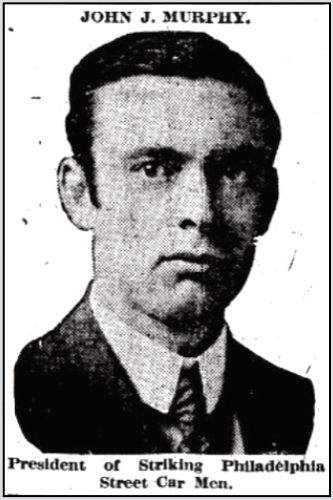 ———-
———-
Hellraisers Journal – Friday April 8, 1910
Spokane, Washington – S. O. Chinn Gets Grand I. W. W. Send-Off
From the Industrial Worker of April 2, 1910:
—–
CHINN’S FUNERAL LARGELY ATTENDED
—–
Many Watch Procession on Riverside Avenue
-Strains of the Marseillaise Heard-I. W. W.
Members Who Attend Funeral Wear Red Neckties.
—–Funeral services for S. O. Chinn, age 27, which were held from the I. W. W. hall proved a magnate as the procession of men, women and children following the hearse and the brass band moved down Riverside Avenue. The last tribute was paid by James Thompson, national organizer of the Industrial Workers at the I. W. W. Hall at 616 Front Avenue, in which he declared that the man had given his life in the interest of the working class.
Three hundred Fellow Workers packed the hall to capacity and after the services followed the hearse and band to Riverside Avenue and Monroe Street, from which point the hearse and pall bearers proceeded to Greenwood cemetery, where Chinn was buried. The casket was draped with the flag of the organization of which Chinn was a member and an officer. Chinn came to Spokane last fall to participate in the free speech fight. His home was originally at Hutchinson, Kansas.
The funeral proceedings attracted a great deal of attention. Before the hearse walked four officers of the I. W. W. with red neckties and red badges of the organization in their buttonholes, while the band before pealed out the martial strains of the “Marseillaise.” Stretching behind for four or five blocks marched the members of the organization, who came out to pay their last respects to the man that had sacrificed his life for the cause of Free Speech.

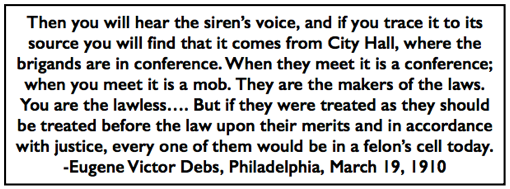 ———-
———-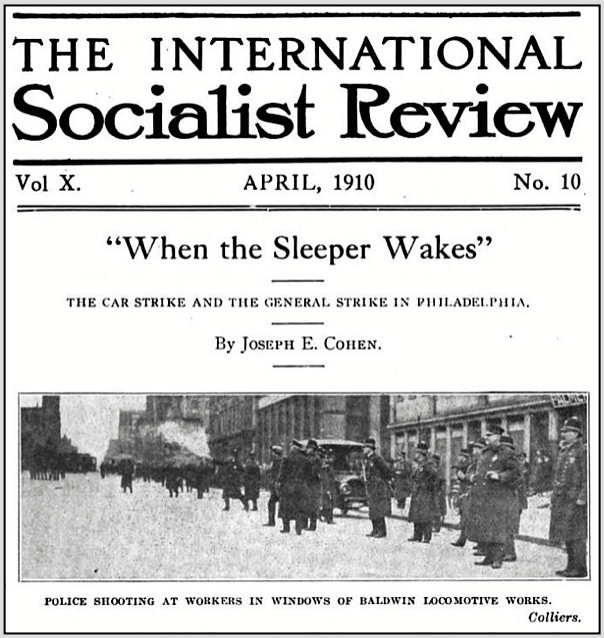 —–
—–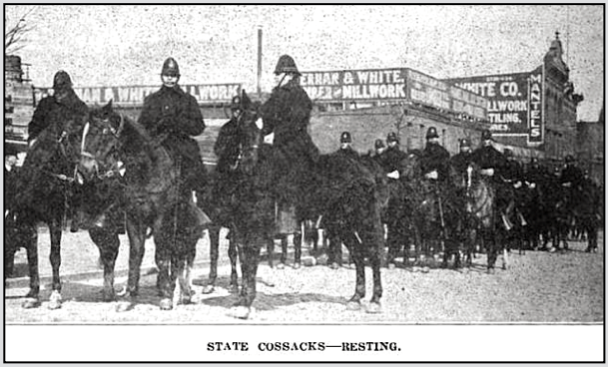 —–
—–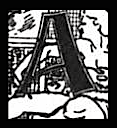 CHILD does not blossom into maturity in a day, nor can a weakling to transformed into a Hercules over night. It requires the lapse of many years in the one instance as in the other. And several decades may pass before a city or a nation attains its majority. Yet there is no telling for how long a time the elements have been gathering for some mighty upheaval; how soon, when the surface of things seemed as calm as ever, there would break out an eruption such as would rearrange all that seemed stable and permanent.
CHILD does not blossom into maturity in a day, nor can a weakling to transformed into a Hercules over night. It requires the lapse of many years in the one instance as in the other. And several decades may pass before a city or a nation attains its majority. Yet there is no telling for how long a time the elements have been gathering for some mighty upheaval; how soon, when the surface of things seemed as calm as ever, there would break out an eruption such as would rearrange all that seemed stable and permanent.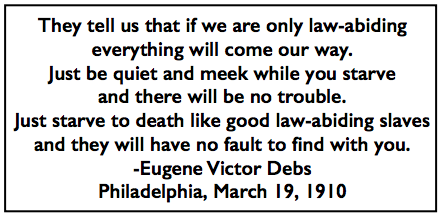 ———-
———-